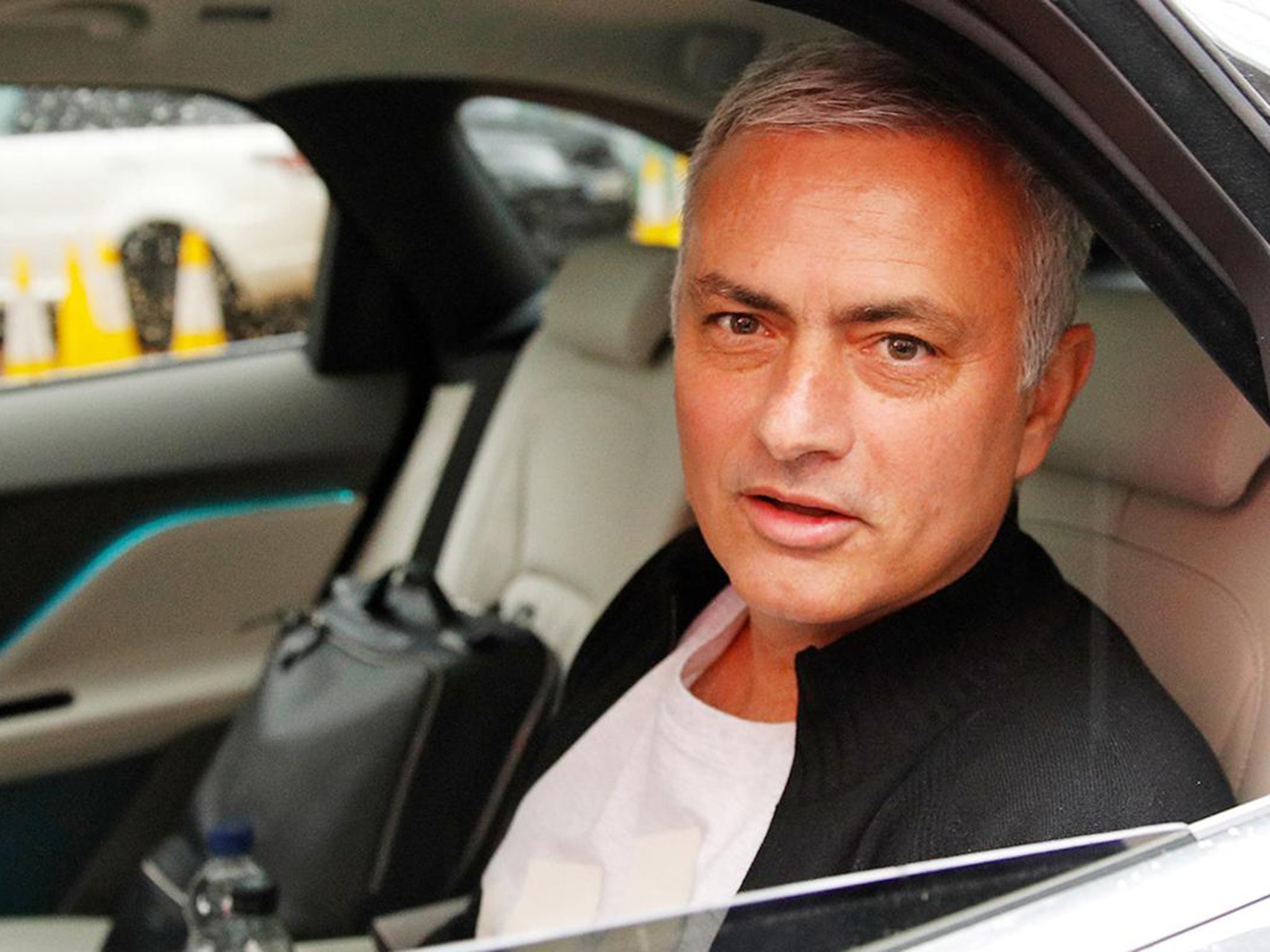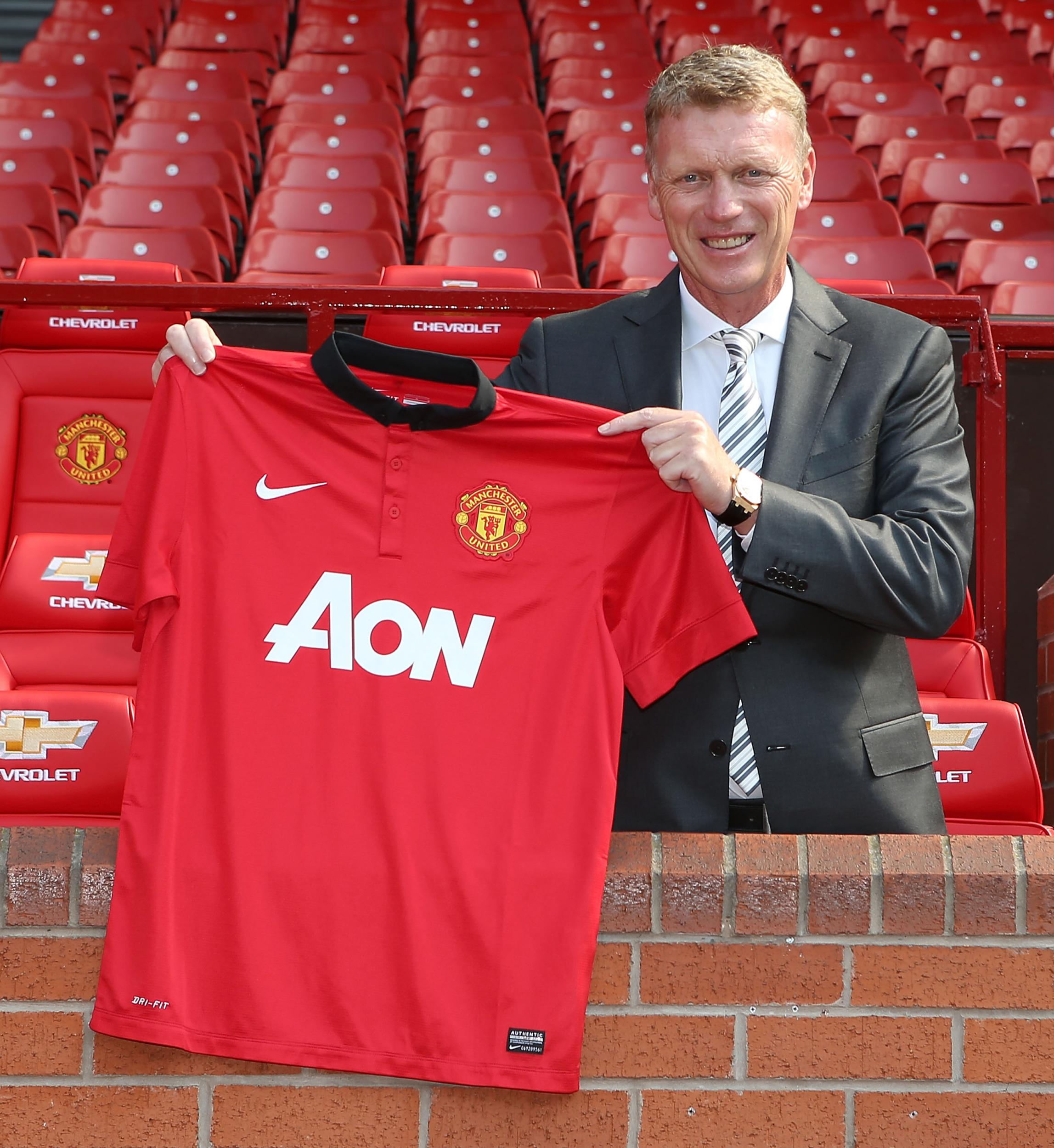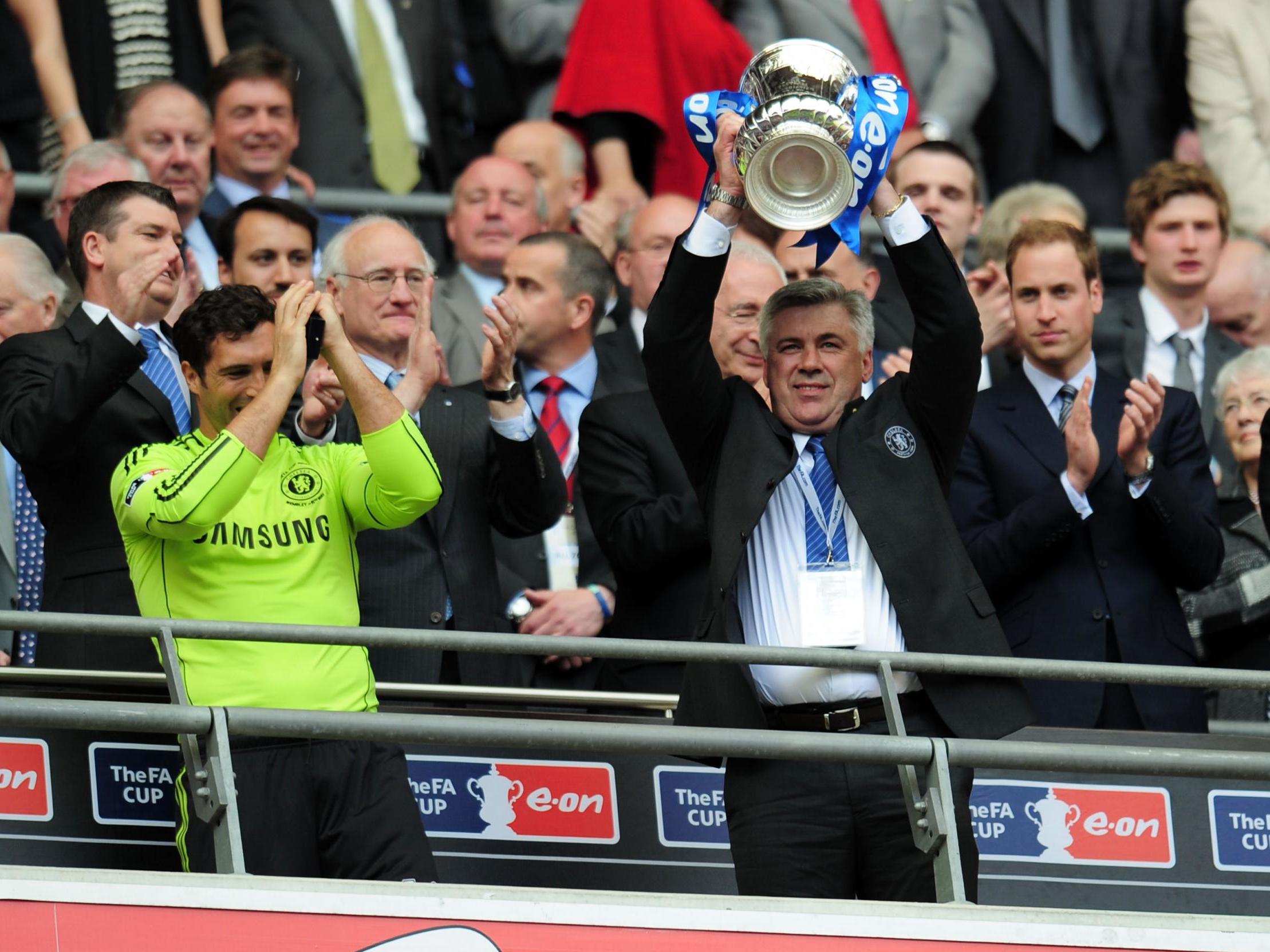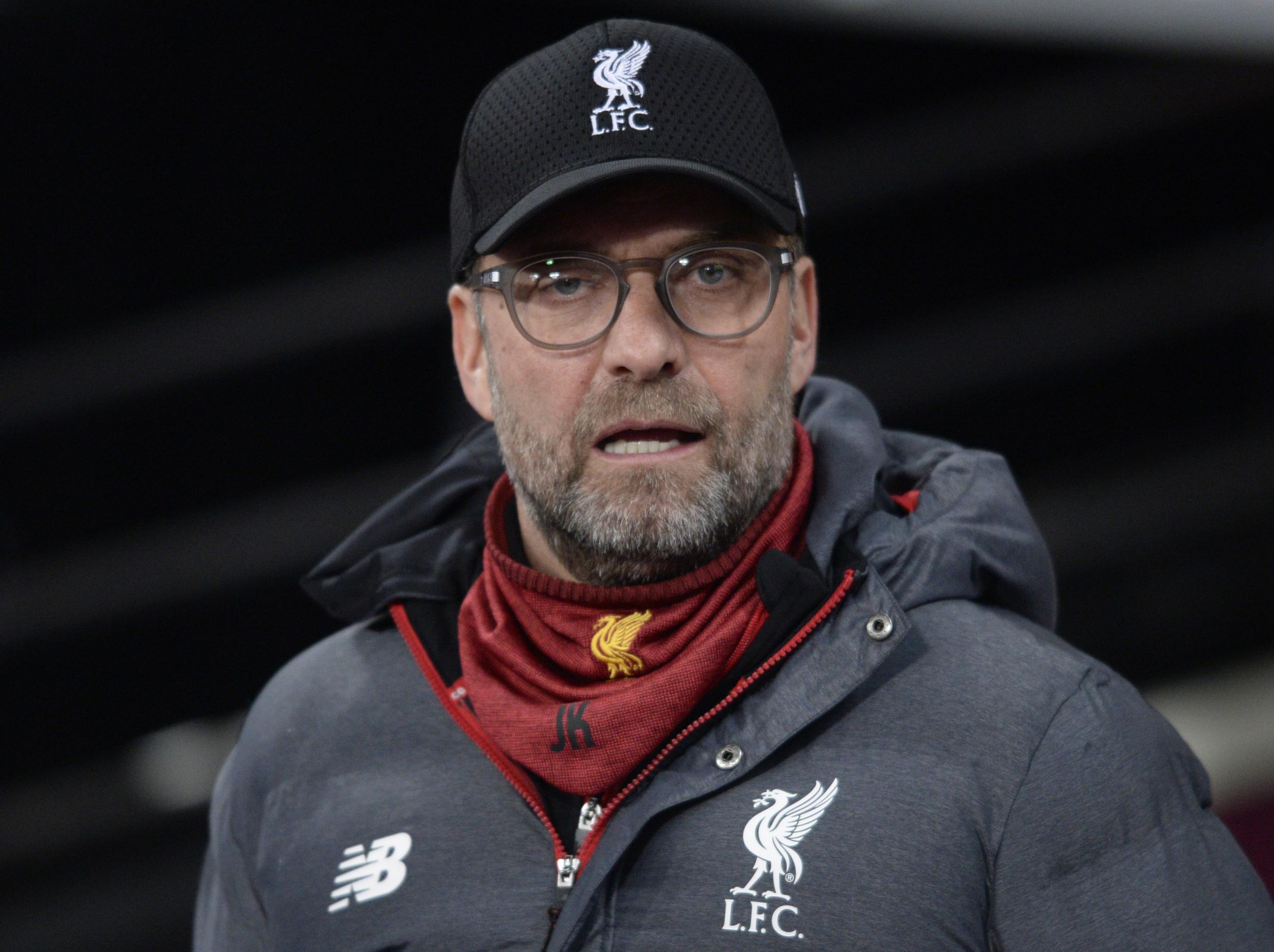What it’s really like to get sacked as a football manager
Whether successful or not, nearly every manager’s reign ends the same way. Vithushan Ehantharajah takes a closer look at what goes on behind the boardroom door


Your support helps us to tell the story
From reproductive rights to climate change to Big Tech, The Independent is on the ground when the story is developing. Whether it's investigating the financials of Elon Musk's pro-Trump PAC or producing our latest documentary, 'The A Word', which shines a light on the American women fighting for reproductive rights, we know how important it is to parse out the facts from the messaging.
At such a critical moment in US history, we need reporters on the ground. Your donation allows us to keep sending journalists to speak to both sides of the story.
The Independent is trusted by Americans across the entire political spectrum. And unlike many other quality news outlets, we choose not to lock Americans out of our reporting and analysis with paywalls. We believe quality journalism should be available to everyone, paid for by those who can afford it.
Your support makes all the difference.To understand how quickly a club moves on from a manager, consider this story from an affluent club in the Championship a few seasons ago.
When news filtered down the club’s grapevine that a popular manager had been sacked a couple of hours earlier, a member of the media department sent him a text message of condolence. Within it also contained inflammatory remarks about the chief executive and the “disgraceful decision” he had taken.
To the horror of the sender, the reply that came back moments later was not from the recently departed, but a staff member who worked in the chief executive’s office. No sooner had the manager been fired and handed back his work phone, it was immediately passed to someone else at the club – same number and all – without warning. The guilty party was reprimanded when the chief executive was informed of the message.
It is not news that managerial sackings are a fickle and grimy part of modern football. What power managers once wielded in the days of Brian Clough and even Sir Alex Ferguson is a thing of the past.
Even Pep Guardiola, in charge of the defending Premier League champions and still with a shot at an elusive Champions League title, is feeling the heat. Regardless of the spirit there may be at Anfield, Jurgen Klopp may end up feeling it too.
Six managers have lost Premier League jobs so far this campaign. Four of them across 16 days from November into December. Two – Javi Gracia and Quique Sanchez Flores – from the same club.
The dismay at each dismissal varied wildly, from Mauricio Pochettino’s emotional farewell from Tottenham to Unai Emery finally getting ditched by Arsenal. One emotion lacking across all was empathy.
It’s absent from the anecdotes you hear, such as Simon Jordan’s tale of sacking Trevor Francis as Crystal Palace manager. Francis sat there in silence before mumbling, “but it’s my birthday”.
It’s in the comments about contracts being paid off. That failure as a manager does not come at a cost but, rather, a bonus. Even in their lowest moments, there is more ridicule than sorrow. Unless you’re a select few, there is no comfort to be had. When the axe is wielded, it’s swift and only for those at the very top of the pyramid is it anything other than a chastening experience to be booted from the boardroom into the real world.
“It is, perhaps, one of the most unconventional employment situations across the spectrum,” Ray Wann tells The Independent. Wann is a lawyer for Sheridans specialising in change-management processes and senior executive deals. He has acted on behalf of managers and clubs in dismissals.
The volatile nature of sackings means Wann has to be available at the drop of a hat: any scenario, at any time and in any location. Sometimes, matters are conducted over the phone, and very often the guts of the exit negotiations between the two parties are done without the manager present.
The “unconventional” element, as Wann puts it, is two-fold. In a regular job, an employer has to follow exact protocols to avoid running the risk of unfair dismissal. And in any other high-end business, removing someone at a cost of millions needs to be ratified at a few levels. Not so in football.
“That’s one of the big, big differences in how senior exits from football clubs might be distinctive from a senior exit from a corporate organisation. There may be discussions leading up to that. Whereas [in football] it tends to be pretty sharp and brutal, as we know.”
A lack of consultation invariably means a lack of forewarning. As was the case with Pochettino, concrete speculation surfaced just over 24 hours before his departure.
For those in Wann’s profession, these reports act as a guide for as and when they made be called into action. As word of Pochettino’s departure spread, Jose Mourinho’s representatives were already prepped for an all-nighter.
Sometimes future-planning goes “unrewarded”, as was the case with Ole Gunnar Solskjaer. Many thought he would not see out December as Manchester United manager and those who might have had a stake in any exit were primed and ready. Yet here we are in February with all signs pointing to him staying for the rest of the season at least.
On other occasions, things come together. The speculation around Marco Silva and his tenure at Everton went into over-drive in the month preceding his exit. As the unrest in the stands filtered into the boardroom as tensions flared between chairman Bill Kenwright and majority shareholder Farhad Moshiri, brokers on both sides were making provisions to, eventually, elicit a break that was far cleaner than anticipated. The only person caught unawares by the move was, apparently, Silva.
“That does tend to happen,” says Wann. “The manager is often the one who is most surprised and those around him not so much. They are head down, trying to make things work even if things are going awry. In that state of stress and desperation to turn things around, you can miss what’s right in front of you.”
Contrary to popular belief, the easiest negotiations are around the payout. A managerial contract is built to ensure departures are as smooth as possible. The most robust elements are around compensation and clauses pertaining to a club’s various outs.
Multi-year deals regularly come with thresholds that need to be met or passed to trigger certain payouts for a manager. David Moyes’ time at Manchester United and his first stint at West Ham United are strong examples of clubs insulating themselves from risk.

Moyes was sacked 10 months into his six-year deal at Old Trafford with four games of his first season to go, receiving a £4.5million payout. Had he been sacked a few weeks earlier, he would have been entitled to twice as much given Manchester United at the time still had a chance of finishing in the top four. When he was sacked, on 22 April 2014, the club were seventh and set for their record lowest points tally in the Premier League. Moyes, to this day, believes the club held off sacking him in that period to save money.
At West Ham a six-month spell from November 2017 saw him help the club avoid relegation. But there were no guarantees in place for a longer-term stay. By the middle of May 2018, he was without a club once more.
The final and hardest negotiations are around messaging. Phrases like “mutual agreement”, “mutual consent”, “parted company” and “both parties agree” are all a charade to suggest goodwill yet often elicit the tetchiest back-and-forth.
Because the departing manager needs this more than anything else. Even after months of poor results, rumblings of dressing room disharmony and the odd blow-up in a press conference, those few words on an officially headed press release confirm he is no bad egg. That, above all else, he is perfectly agreeable. Not – definitely not – damaged goods.
It is, as many spurned managers attest to, the last request they make to a club about to cut them loose, and the beginning of a period when they feel at their meekest. A humbling moment when the human cost of managerial sackings comes into effect.
It is usually at this point in those boardroom proceedings that information trickles down to the rest of the football club. When those “sorry to hear the news” messages are sent but rarely received.
Nowadays, Premier League clubs are split in two: the main ground and the training ground which is where the “football hub” is located. It is here where the manager’s main office is located and, thus, where the immediate fallout is greatest.
“You know when it’s happening,” says one source from Chelsea who worked at the club during a period where the football operation was relocated from Stamford Bridge to the training complex in Cobham.
“At a club pushing for titles, it never takes much for the speculation to start. And that’s when you get taken to one side and told to put on a smile, not talk about football or even stay out of the way of some of the football people.
“Sometimes, when you hear a manager is gone and it’s someone you got on with really well, like Carlo Ancelotti, who was a gent from start to finish, you’re relieved. For yourself as you’re no longer treading on eggshells, but also for him. You see them change over the course of it all. You see them get unhealthy in front of your eyes.”

In the immediate aftermath of a sacking, a manager will often go back to their office. Just as when leaving any other job, clearing your desk is the first port of call. But there is also a lot of sitting around, staring at plans adorned on the walls that went awry, tactical set-ups that did not come to fruition, calls to make regarding short- and longer-term arrangements. And, of course, trusted journalists to brief on your side of the story.
Some managers take time to say their goodbyes. For many, especially those from overseas, they will have spent more time with the day-to-day staff at the training complex than their families.
When Mourinho first left Chelsea in September 2007, he made sure to go around the administrative office at Stamford Bridge and thank them for their help. He was in good spirits, joking about a cardboard cutout he had given to them earlier so they would not miss him. That same office heard of his second sacking in December 2014 through Sky Sports News.
“You see them for breakfast, lunch and, often, dinner – often four or five days a week,” said a canteen worker at a top-flight club. “You call them gaffer, or boss. You end up being an outlet for their non-football conversations: about their families, your families and whatever. I’ve had a lot of hugs goodbye and they’re never nice.”
A common regret is being unable to say farewell to the fans. Even Pepe Mel, who spent just four months as manager of West Bromwich Albion at the start of 2014, hamstrung by being unable to bring over his own coaching staff and the language barrier, sees this as a great regret to this day: “My biggest mistake was not arranging a press conference to say goodbye to the fans. They always supported me.”
He admits that, while considering his failure and the prospect of vacating a house in Birmingham that had just started to feel like home, it was the last thing on his mind. At the time, the shame of losing a job in a league he yearned to excel in was so great that he wanted to leave the scene as soon as possible.
In March 2017 when Alex Neil was sacked by Norwich City, he left some of his belongings at the club’s Colney training complex, which included a big suitcase which no one knew what to do with. It was taken to Carrow Road and remained in a corner until, six weeks later, Neil returned to pick it up looking fit, fresh and even tanned.
He was in good spirits and back to his usual charming self. If you’ve ever broken up with someone, you will be familiar with this play: returning to collect your possessions while keen to display just how well you have moved on. The only difference is in football, you rarely get a second chance. And the stark reality is time away is never welcome or ever really a break.
In some instances, managers do not just give up their offices but also their houses which are often owned by their clubs. The knock-on effect is a return “home” which can mean having to pull their children out of schools.
Generally, when a big club hires a manager with a family, they will assume the costs of not just relocating them but, in some cases, schooling too, be it for a year or their entire stay, and will even pull strings to get them into the best local private institutions.
However, it is very rare for the back-end to be as forthcoming as the front-end. When a manager’s employment ends, so do the perks, and the toll of relocating once more is down to the individual.
Only in the rarest of cases will a reciprocal offer be in place. For instance, it is understood that when Klopp’s time at Anfield comes to an end, there is an offer within his contract to repatriate him back to Germany on his terms.

For those on working Visas, things are more complicated. Following termination of employment, there is a grace period of 60 days.
Some managers in this situation have tried desperately to cling onto residencies by trying to secure jobs at lower clubs to avoid having to shift their families once more. There have been some cases where a manager has had to return to their own country while their families remain in situ so as to go over the 60 days.
It is amid this testing period that the League Managers Association do their best work. For those lower down the chain who do not have access to the best legal representation or have the benefit of contractual help, they are a godsend.
Richard Bevan, the chief executive who has been with the LMA since 2008, has made it his duty to create a stable of specialists to assist those without the resources to enlist the help of, say, lawyers like Wann. In fact, he has done such a good job that there is some dissent among those who work independently that the LMA impinge on their profits.
The LMA also helps managers get back on their feet. They put on masterclasses, leadership seminars, workshops and various other industry events to tick over a coach’s credentials. They encourage members to do more public speaking and presenting, and do more charity work. These are ideal for networking purposes and, ultimately, a way of staying relevant.
The most effective way of maintaining a public profile is broadcasting work and this is where the canniest managers do their best work. Some are naturally attuned to punditry. For others, working on television or radio takes a lot of work. Even putting themselves forward for gigs can be a humbling experience.
Ex-players working in the media often joke at the number of messages they receive from former bosses who are out of work whenever a vacant role is discussed or an employed manager’s position is up for debate, often asking for a mention to at least get odds against their name for “Next manager” markets. It is a grimy practice but, Again, this is a world that rewards brazenness.
On occasion, a manager can jump into punditry too quickly. Just weeks after Neil was relieved of his post by Norwich, he was back at Carrow Road working for Sky. It was particularly uncomfortable as the caretaker manager, Alan Irvine, was Neil’s assistant and a close friend. But the work, from the pay to the profile it offered, had to be taken. Neil is now manager of Preston North End who are currently seventh in the Championship, three points off a play-off spot.
Yet again, for the best example, it is worth going back to Moyes, who is now undertaking his second stint at Upton Park.
After leaving West Ham in the summer of 2018, he hoped further employment would not be too far away. Beyond an immediate link with Stoke City, nothing was forthcoming.
So Moyes, hardly renowned as the most engaging media presence – he was charged and fined £30,000 for threatening to slap a female journalist in 2017, lest we forget – realised he had to change his ways. He began putting himself forward for pundit jobs and, amid the odd appearance for Sky, became a regular on BBC Radio 5 Live.
As it happened, many of his stints at the BBC’s Salford headquarters would involve working with certain people he had previously had run-ins with.
“I’m not sure if he remembered me,” said one particular radio journalist who requested anonymity. “But he was so antagonistic when I dealt with him. So cold. So wilfully disagreeable. And then suddenly, he’s all smiles, doing hour-long shows. Even offering to go on a tea run!”
A more personable disposition was not the only thing Moyes learned. His new contract with West Ham, a product of continued good relations with the executive trio of David Gold, David Sullivan and Karen Brady, was more airtight than his previous deal.
The contract, made official on December 29, 2019, was for 18 months and featured a performance-related clause that will be automatically activated if he keeps the club up, thought to include a bonus of £2million.
Of course, the contract as a whole will still be heavily skewed towards the club’s comfort with regards to liability of cost and performance. But Moyes is a strong example of a manager whose credibility might have hit a few branches after falls down the tree but he has used the blows to learn and adapt.
Football management will always be a fickle world. Embracing its harsh realities and rolling with the punches is the only way to survive.
Join our commenting forum
Join thought-provoking conversations, follow other Independent readers and see their replies
Comments